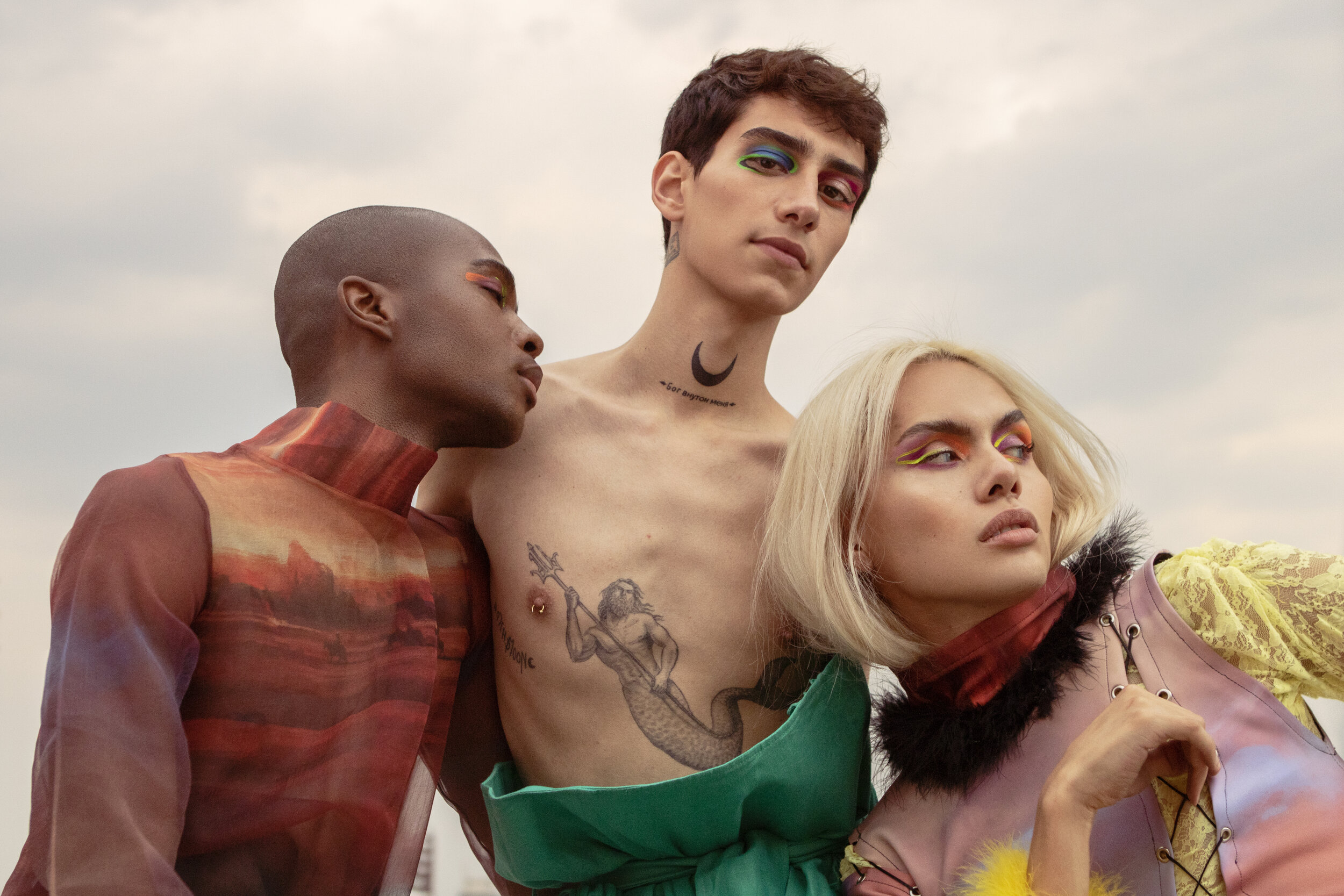Queer Crew: A Photo Series by Rob Woodcox
About the artist: Rob Woodcox is a fine art and fashion photographer currently living between Mexico and the US. As he creates each artwork, Rob strives to capture fragments of a vivid life sewn by the threads of reality, memory and dream. Each concept is a declaration of his experience and seeks to tell a meaningful story to each individual that views it.
Rob's passion for photography has developed into a dedication to advocacy and making strained voices heard. Rob has produced projects raising consciousness and conversation around the US foster system and adoption, queer identity, body neutrality, racial equality and environmental justice. Having been adopted as a child and interacting often with the foster care system, Rob creates from a unique perspective, finding hope in human connection and the will to overcome negative constructs within our complex societies.
In 2013 Rob went through his own "coming out" experience, a societal passage only necessary from the lack of education and acceptance within the greater population. Though a challenging and demanding experience, Rob used this energy to pursue his photographic goals full time and began touring the world teaching workshops and creating sponsored content. Rob has taught thousands of students in 6 continents, 15 countries and 34 cities worldwide. He has been featured in various major publications, gallery exhibits and has produced commercial work for clients like Universal Pictures and Capitol Records. In 2020 Rob released his first photographic art book “Bodies Of Light”. He continues to embark upon new personal and business creative endeavors.
When he is not creating photographs, Rob mentors artists, travels, cooks, backpacks and gets lost on whichever adventures present themselves.
Read below for an accompanying article by Alejandro Perez Montes

































